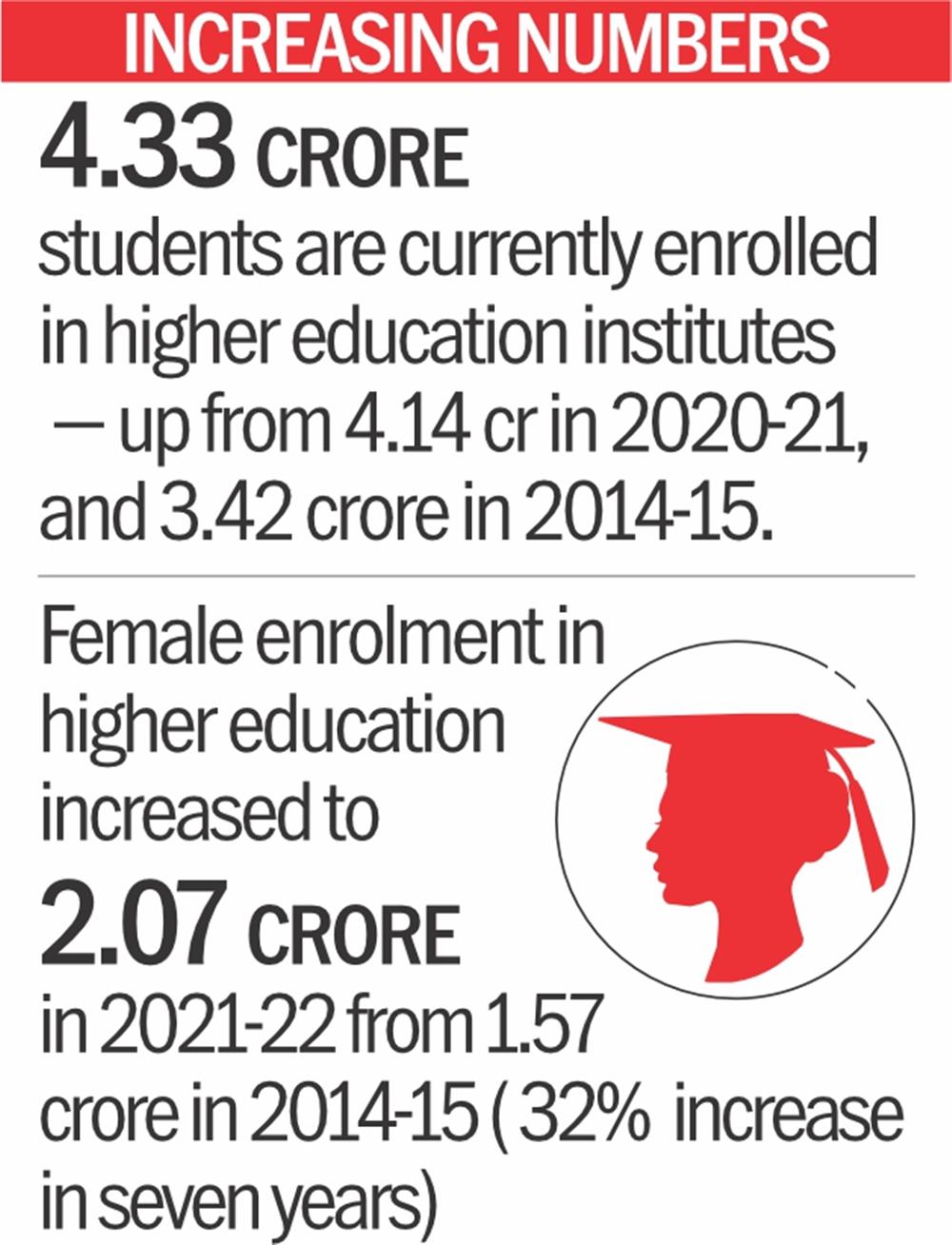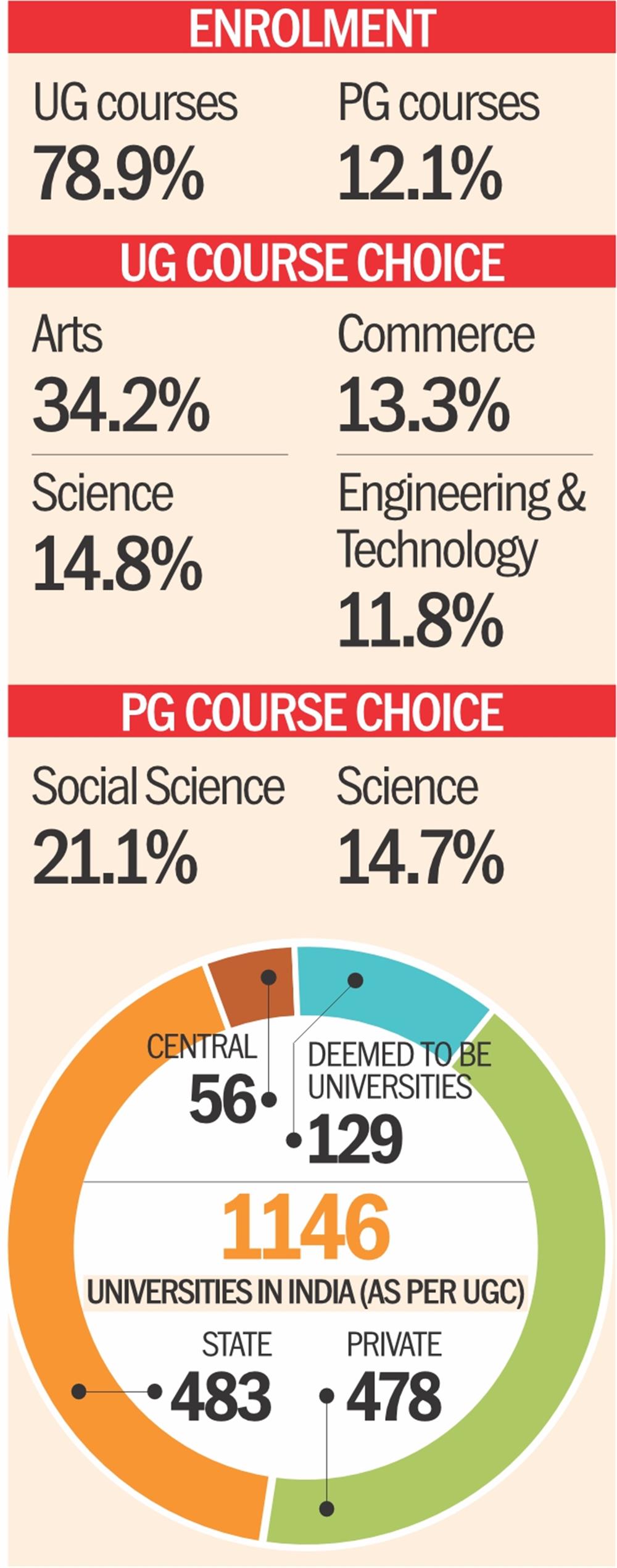|
In the 21st century, where human potential intersects with artificial intelligence, the notion of education as mere rote memorizing is becoming obsolete. Students are no longer competing with peers, but against machines armed with artificial intelligence. Education should be able to equip them with the competence necessary to thrive in a rapidly evolving world.
India’s educational landscape is experiencing a steady shift, transitioning from an industry-based economy to one propelled by knowledge and innovation. This evolution has intensified the competition among higher educational institutions (HEIs) and students for adopting a more dynamic and skill-centric approach signaling a departure from the traditional paradigms. This change has been aptly articulated and propelled by NEP 2020.
As educational institutions implement NEP 2020, they face various challenges, such as upgrading infrastructure for digital learning and research, fostering industry-academia collaborations, implementing multidisciplinary approach and offering multiple exit points within a four-year undergraduate programme. Quality education delivery will rely on crucial faculty development programs. Challenges also arise in curriculum overhaul and the shift towards competence-based evaluations. Implementing NEP’s regional language instruction policy, particularly in regions where English predominates, may encounter resistance. Changing the prevalent teacher-centric mindset to student-centric approaches, promoting creativity and critical thinking, and fostering a culture of continuous learning will require concerted efforts from all stakeholders. The HEIs also need to get out of the conventional system of education. As envisaged by the NEP 2020, they should develop and conduct employment-oriented programmes co-developed with industry leaders. They should also offer short-term vocational skill certificate courses. Students entering universities and colleges adopting NEP’s recommendations should be prepared to explore interdisciplinary courses and extracurricular activities, pursue internships and research projects, and cultivate a mindset of lifelong learning and adaptability.
The NEP also emphasizes the internationalization of education as crucial for the advancement of India's knowledge-driven economy. Institutions must adopt a global perspective, recognizing that internationalizing education is crucial for the advancement of any knowledge-driven economy. By attracting international scholars and fostering collaboration between Indian and foreign universities, HEIs can infuse global expertise into their curricula, enriching the educational experience for both students and faculty.
Central to the NEP’s vision is the goal of nearly doubling the Gross Enrollment Ratio (GER) in higher education from 26.3 per cent in 2018 to 50 per cent by 2035, elevating the quality of HEIs and positioning India as a global education hub. This target can be achieved only if the HEIs are ready to embrace the change and adapt to the evolving educational landscape. They must understand that embracing these changes is not an option but a necessity.
Most importantly, the HEIs need to acknowledge skill development as a key objective of education as the future of work will extend beyond technical skills to encompass a holistic skill set. The colleges and universities imparting education must seriously consider the link between skills and employability. India has the world’s largest youth population, of which only a small percentage is formally skilled. An emphasis on formal education leaves graduates ill-equipped for the competitive job market. The transition towards holistic, skill-based education, as outlined in the National Education Policy 2020, is vital for the success of both institutions and the students graduating from them. In this digital age, soft skills have become more significant. Communication, problem-solving, creativity, and critical thinking are all essential for successfully navigating an automated world.
|
  |